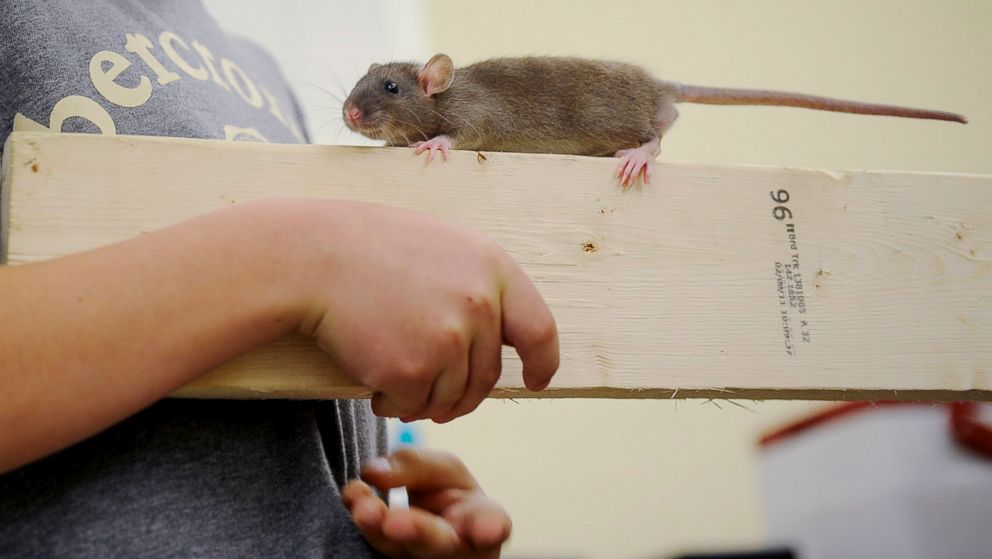Seoul Virus Spread by Pet Rats Under Investigation in Multiple States
At least eight people have been infected with rare Seoul virus, the CDC said.

— -- Health officials are investigating an outbreak of the rare Seoul virus, among pet rats and people exposed to rat-breeding facilities in multiple states.
The U.S. Centers for Disease Control and Prevention issued a health advisory yesterday alerting doctors and other health officials they have expanded their initial investigation to 10 states.
Last week, the CDC reported an outbreak of the Seoul virus in Wisconsin and Illinois, which spread via infected pet rats. This is the first time that the virus has been known to spread via pet rats in the U.S., rather than wild rats.
The illness is part of the Hantavirus family of rodent-borne viruses and causes fever, headache, back pain, chills and nausea. In rare cases, the virus can cause renal failure and hemorrhagic bleeding. Patients who develop these rare serious symptoms face a mortality rate of approximately one to two percent, according to the CDC.
"Human and animal health officials are working together to trace-back from where infected rodents may have come," CDC officials wrote in the health advisory, "and trace-out where potentially infected rodents may have been distributed, and make sure infected rats are not distributed further."
The CDC reported that they have notified local officials in 10 states that infected pet rats may have been sent to or purchased by residents in those areas. These states are Alabama, Arkansas, Colorado, Illinois, Indiana, Louisiana, Michigan, Minnesota, South Carolina, Tennessee, Utah and Wisconsin.
Officials first discovered the Seoul virus outbreak when a home-breeder of pet rats was hospitalized last December with fever, headache and other symptoms in Wisconsin. Blood tests revealed the patient was suffering from the rare virus, as was a close family member who also worked with pet rats, according to the CDC. Both eventually recovered from the virus.
Investigators then looked at rat breeders who supplied the rats to the first patient. They found six who also tested positive for the Seoul virus.
The virus is not passed person to person, but from infected rats to people via the rat's droppings, saliva or urine or after exposure to dust from nests or bedding, according to the CDC.
There is no cure for the virus, but less severe cases can resolve in one to eight weeks, according to the CDC. Patients can be treated with supportive care such as extra hydration and electrolytes and maintaining correct oxygen and blood pressure levels.




